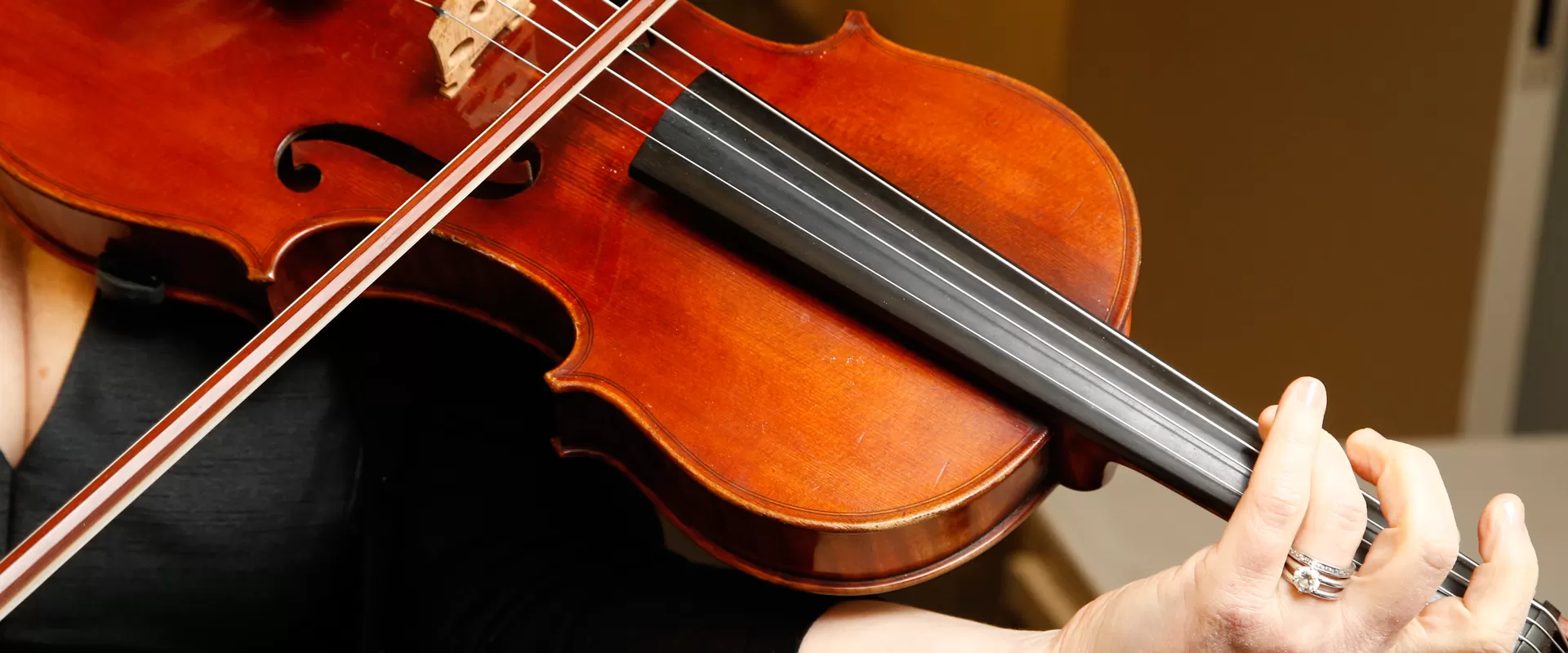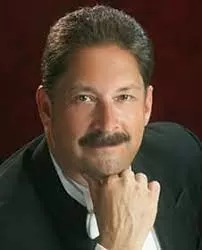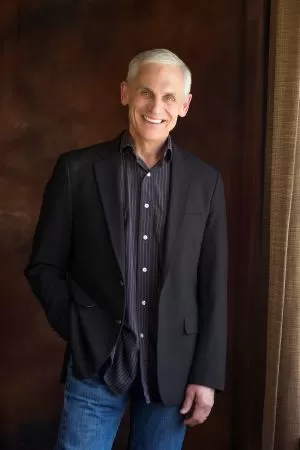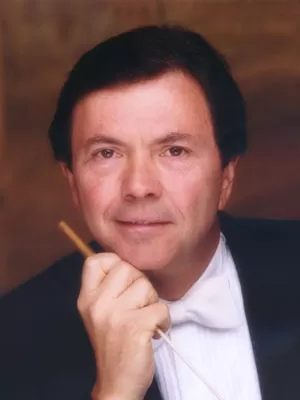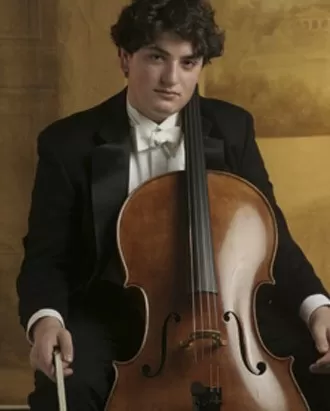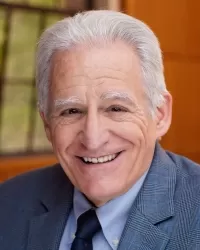May 9, 2006 - 12:00 pm
Monday, May 8, and Tuesday, May 9, 2006
Illsley Ball Nordstrom Recital Hall
Enjoy a slideshow and video clip from our May 2006 production.
Introduction: Bob Goldfarb interviews Ela Stein Weissberger, the Cat from the original Terezín production.
A Concert Prelude in Memory of the Victims of the Holocaust
Robert Dauber, Serenata
Soloist: Jocelyn Chang, 2006 Recipient of the David Tonkonogui Memorial Award
(Monday, May 8, only)
Gerard Schwarz, "In Memoriam"
Soloist: Julian Schwarz, First Recipient of the David Tonkonogui Memorial Award
(Tuesday, May 9, only)
Hans Krása, Overture for Small Orchestra (Terezín, 1943-44)
Music of Remembrance Ensemble
Gerard Schwarz, conductor
Craig Sheppard, piano
Hans Krása, Brundibár (Terezín, 1943)
Libretto by Adolf Hoffmeister (1902-1973), English Libretto by Tony Kushner
In collaboration with the Northwest Boychoir, Joseph Crnko, Music Director
Music of Remembrance Ensemble
Gerard Schwarz, Conductor
Erich Parce, Director
Overture for Small Orchestra
(Terezín, 1943-44)
Hans Krása
(b. Prague, November 30, 1899; d. Auschwitz, October 18, 1944)
Hans Krása was an important member of the Czech- and German-speaking artistic community that defined Prague's distinctive cultural life in the first decades of the 20th century. Krása studied composition in Prague with Alexander Zemlinsky, and his youthful works include song cycles, several chamber works, a cantata, and an opera based on a Dostoevsky story. His 1923 symphony for small orchestra was performed in Zurich in 1926 under Zemlinsky, and in Boston and New York (1926-27) under Serge Koussevitsky. Krása followed Zemlinsky briefly to the Kroll Opera in Berlin in 1927, but was soon drawn back to his native Prague. He turned down conducting opportunities in Paris and Chicago, choosing to remain in Prague even during the years when this meant risking his life.
While Krása's style was influenced by Stravinsky, early Schönberg and French impressionism, his music remained melodic and lyrical. He wrote: "I am sufficiently daring, as a modern composer, to write melodic music. This reflects my whole attitude to music, whether it is called modern or anything else."
Krása wrote the Overture for Small Orchestra in the Terezín concentration camp, where he was incarcerated from 1942 to 1944 (along with Viktor Ullmann, Gideon Klein, Pavel Haas and other Jewish leaders of Czech musical life). Terezín, 35 miles north of Prague, is now known for its exploitation in Nazi propaganda intended to deceive the world and cover up the campaign of genocide against the Jews. The Nazis cynically presented Terezín as "the Fuhrer's gift to the Jews," but in fact it was a transit camp through which prisoners were systematically transported to death camps in the East. Of approximately 141,000 Jews deported to Terezín between 1941 and 1945, fewer than 17,000 were alive at liberation. Its victims included some of Europe's most talented Jewish musicians, composers, teachers, artists and writers.
Krása was sent to Terezín on August 10, 1942. While disease, starvation, and brutality accompanied daily life there, the Nazis did permit the composition and performance of serious and cabaret-style music. Krása led the music section of the Freizeitgestaltung (Administration of Leisure Activities), and he composed the Overture for Small Orchestra after revising his children's opera Brundibár. The overture was probably never performed in Terezín. We can only speculate on whether Krása intended it to accompany Brundibár, but both works share similar orchestration, stylistic features, and a common melodic theme.
Krasa was deported to Auschwitz on October 16, 1944, and murdered in the gas chambers two days later.
Serenata
(Terezin, 1942)
Robert Dauber (b. Prague, ca. 1922; d. Dachau, 1945)
United States Premiere on April 12, 1999, Benaroya Hall, Seattle, WA
At Music of Remembrance's Holocaust Remembrance Concert
Aside from the postcards from Terezín that Robert Dauber sent to his parents, who remained in Prague through the war, the Serenata for violin and piano is our only reminder of the short life and compositional efforts of this talented pianist and cellist. Robert came from a musical family. His father was the leader of the Dauber Salon Orchestra, and Robert was exposed to the musical style and performances of this popular ensemble. Robert played the cello in Terezín's orchestra, including performances of Brundibár. The young Dauber had aspirations beyond survival. He hoped to form a piano trio, and to hear a performance of this charming Serenata. Neither would come to pass. Robert Dauber was deported to Dachau, where he died of typhus.
Notes by Mina Miller. ©Music of Remembrance
In Memoriam
(2005)
Gerard Schwarz (b. Hoboken, New Jersey, 1947)
World Premiere on May 9, 2005, Benaroya Hall, Seattle, WA
At Music of Remembrance's Holocaust Remembrance Concert
Gerard Schwarz offers the following remarks:
In Memoriam is a work for solo cello and string orchestra (or string quartet), written in memory of a great musician and dear friend, David Tonkonogui. I was very thrilled when my son Julian was chosen to be the first recipient of Music of Remembrance's David Tonkonogui Memorial Award. David meant so much to all of us in our household and was such an inspirational teacher for Julian, fostering his passionate love of music. When Mina Miller, Artistic Director of Music of Remembrance, and I were discussing what short work Julian would play as part of his prize for the MOR Spring Concert, I suggested that perhaps I could write something. I was very interested in the possibility because of my deep affection for David Tonkonogui and everything that he represented as an artist and as a person. Mina embraced the idea, so during the end of March and beginning of April 2005, I wrote this work.
In Memoriam is basically in three parts: the first section is funereal in spirit, reflecting on the tragedy of death for someone so young and so gifted-and so remarkable. There is a consistent sadness and poignancy in this opening section. The middle section begins with the string quartet and then the material is repeated and embellished in the cello. I wanted this to be positive in feeling, thinking of all the great accomplishments of this wonderful man, individually and as a father and husband. It has a somewhat otherworldly quality but hopefully the experience is uplifting; a tribute to the extraordinary meaning that David Tonkonogui's life meant to all that knew him. Finally, the coda brings back a little part of the first section in a much shortened version, which is also much thinner texturally, to end on a single note-the lowest or purest note on the cello.
Brundibár
(Terezin, 1943)
Hans Krasa (b. Prague, November 30, 1899; d. Auschwitz, October 18, 1944)
Libretto by Adolf Hoffmeister (1902-1973)
English adaptation by Tony Kushner
Tony Kushner offers the following remarks:
In 1938, the Czech Ministry of Education and culture sponsored a competition for a children's opera. Among those vying for the prize was a 40-year-old Prague composer, Hans Krása, whose entry, libretto by the playwright Adolf Hoffmeister, was Brundibár (the word is Czech for bumblebee).
I haven't been able to find out whether Brundibár won the competition or whether the competition was ever concluded. A few months after the opera was completed the German army invaded and occupied Czechoslovakia. Krása, who was Jewish, would have been barred from participation in such a contest, his music unperformable before a general audience according to Nazi race laws. Brundibár was not given its premiere until 1942 at the Vinohrady Jewish Boys' Orphanage, which had become a concert and recital hall for the Jews of the Prague ghetto. Before the first performance, Krása, as well as the opera's conductor, Rafael Schaechter, were arrested and sent in the first transport of Prague Jews to Theresienstadt, or Terezín, the Nazi's "model ghetto" for the Jews of Central Bohemia - in reality a concentration camp and a way station for the death camps of Auschwitz, Birkenau, Treblinka.
In spite of the arrests, Brundibár was performed at the Vinohrady Orphanage, conducted by Rudolph Freudenfeld, son of the orphanage's director. The piece was given three performances before the transports rounded up Freudenfeld father and son, director and designer Frantis?ek Zelenka, pianist Gideon Klein, who had been the accompanist, and the boys of the Vinohrady Orphanage.
Rudolph Freudenfeld had hidden a copy of the piano score in his luggage, and so Brundibár arrived in Terezín, where Krása was now the inmate in charge of music for the Freizeitgestaltung (Free Time Activities Administration). Krása brilliantly reorchestrated the piano score, taking advantage of the presence in Terezín of a number of talented instrumentalists. In September 1943, the Vinohrady group, now concentration camp inmates, staged a new, co-ed production, cast with imprisoned children. The opera itself become a hit among the inmate population; Rudolph Freudenfeld conducted, Zelenka directed and designed a new set, the poet Emil Saudek wrote a new anthem for the opera's finale, emphasizing Brundibár's political value as allegory - in photos of the production the boy playing Brundibár is wearing a mustache, which, though more of the handle-bar than toothbrush variety, surely made its point.
Brundibár was performed 55 times at Terezín. It was begun by Jews for Jews, but before long the camp officials recognized the propaganda potential of Brundibár, with its singing prisoner children and "happy" (or at least momentarily distracted) prisoner audiences. The opera was performed for the International Red Cross committee of one (an inexperienced young man, utterly charmed and duped by the Nazi commandant) sent to inspect camp conditions. Segments of the performance were filmed and included in the film Der Führer schenkt den Juden eine Stadt (The Führer Gives the Jews a City), produced by the Nazis and directed by a camp inmate, the great actor and singer Kurt Gerron.
The opera's director and designer, the poet Saudek, Kurt Gerron and nearly all the children who performed Brundibár-including Honza Treichlinger, the boy who became a Terezín celebrity for creating the title role of the wicked organ grinder-were eventually sent to Auschwitz where they were murdered. Hans Krása died in the gas chambers in Auschwitz in October 1944.
Brundibár is a beautiful children's story, extolling the virtues of courage and cooperation and collective action against tyranny. In a sense, it's a tale of the outrage and rebellion of even the natural world of dogs, cats and sparrows against preventable evils-injustice and poverty and the suffering of children. It's a tale of the power of music to make miracles happen. It's a story of good defeating evil. But its beauty is haunted, for it comes from one of the darkest points in human history, when evil, at least for a time, was triumphant over good, and millions upon millions died.
One could say ultimately the music has triumphed: today Brundibár is performed all over the world, and the Jewish people have survived, endured, flourished. On the other hand, one must always be wary of drawing false reassurances from the horrific lessons of the Holocaust, perhaps especially now, when children all over the world are in such mortal danger-poor children, children in war zones, Jewish and Palestinian children, as well as homeless, uninsured, unprotected children in the United States. In dark times such as these, Brundibár, both the opera and its tragic history, shouldn't offer us too much reassurance; we shouldn't draw comfort from the fact that, even after the worst has happened, people and art survive, because after all, only some people survive, while many are lost, and some art is salvaged, but much creative brilliance, like Hans Krása's, is extinguished before its time, and what the world loses can't be recovered.
Instead of false comfort, Brundibár offers inspiration to action, and exhortation. Be brave, and you can make bullies behave! Rely on friends! Make common cause, build communities, organize and resist! And tyrants of all kinds, in every generation, can be and must be made to fall.
